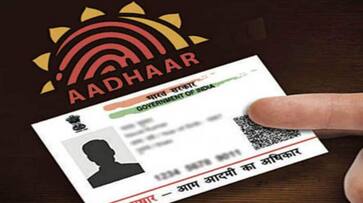A collaboration of the government and private sectors, international and local participation, and community involvement designed by the Narendra Modi administration to make Aadhaar work for social benefits energised a system that was conceived in the 1990s but was not working for more than two decades, say William Eimicke and Howard Warren Buffett in their book Social Value Investing: A Management Framework for Effective Partnerships
New Delhi: Prime Minister Narendra Modi’s unique approach to Aadhaar, which had been languishing under the UPA regime, has received international recognition with two professors of Columbia University praising the unique biometric ID system in their book titled Social Value Investing: A Management Framework for Effective Partnerships.
Howard W. Buffett and William B. Eimicke decided to write the book because they believe that profit and purpose need not be mutually exclusive.
“If you look at some of the bigger problems facing the world - inequality, climate change, opportunities and disappearance of work - these problems can’t be solved by the government alone or the private sector alone. We have been researching this area for 10 years, that you can be efficient and do good at the same time,” says Eimicke in an interview.
What they found most fascinating in their research, was India. Eimicke praised the Narendra Modi government and its judicial use of the Aadhaar system.
“India is the sixth largest economy in the world. They have created a biometric ID system which not only made all citizens eligible for government benefits, irrespective of where they are but is also bringing banking to rural sectors of India,” he said.
When he was asked about why he thinks that the move by the government is a success, he said, “The government had this idea (of creating a unique biometric ID) for a long time but lacked the resources to bring it to life. But when Prime Minister Narendra Modi came to power, he reached out to 'India’s Silicon Valley' (signifies Bengaluru as a hub for information technology companies in India) and made it happen. The backbone of the system is the private sector and the registration was done by 2,00,000 entrepreneurs that they licensed into the system to get people registered. So it was local, international, government, private and community all working together”.
The professor also observed that people living in remote areas are accessing advanced medical care by doctors in cities like Mumbai with the help of Aadhaar.
"Through e-medicine with a private-for-profit, Apollo Medicine, you can be diagnosed for brain problems by one of the best doctors in the world in Mumbai in your small village in northern India. To me, it is almost like science fiction," Eimicke says.
Social Value Investing presents a new way to approach some of society's most difficult and intractable challenges. The authors present a five-point management framework for developing and measuring the success of such partnerships.
Last Updated Jul 3, 2024, 5:53 PM IST









![Salman Khan sets stage on fire for Anant Ambani, Radhika Merchant pre-wedding festivities [WATCH] ATG](https://static-gi.asianetnews.com/images/01hr1hh8y86gvb4kbqgnyhc0w0/whatsapp-image-2024-03-03-at-12-24-37-pm_100x60xt.jpg)
![Pregnant Deepika Padukone dances with Ranveer Singh at Anant Ambani, Radhika Merchant pre-wedding bash [WATCH] ATG](https://static-gi.asianetnews.com/images/01hr1ffyd3nzqzgm6ba0k87vr8/whatsapp-image-2024-03-03-at-11-45-35-am_100x60xt.jpg)


